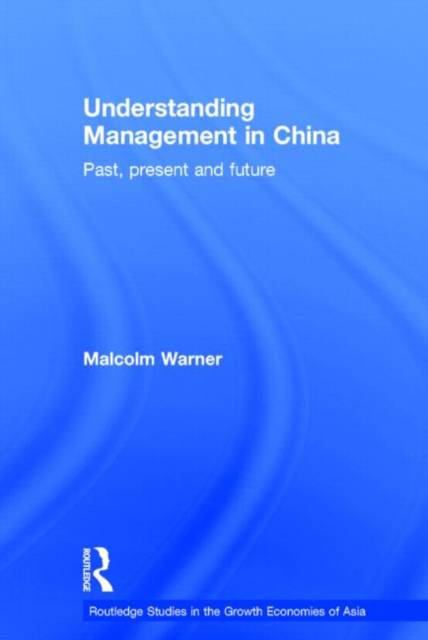
- Retrait gratuit dans votre magasin Club
- 7.000.000 titres dans notre catalogue
- Payer en toute sécurité
- Toujours un magasin près de chez vous
- Retrait gratuit dans votre magasin Club
- 7.000.0000 titres dans notre catalogue
- Payer en toute sécurité
- Toujours un magasin près de chez vous
Description
China has become one of the fastest-growing economies ever seen in the world in recent times. In the last three decades, China has transformed itself from a command economy to a market one, albeit a nominally socialist one, and its management systems have been reformed accordingly. In the light of these changes, Malcolm Warner, one of the leading authorities on management in China, explores the past, present and future of Chinese management. The first part of the work examines the history of management practices in the 'Middle Kingdom', outlining the influence of traditional Chinese values, especially the Confucian inheritance, and the legacy of the imperial bureaucracy with its meritocratic examination system, as well as the role of industrialization and the influx of foreign-owned businesses in the late nineteenth century and the twentieth century. It next goes on to consider the current state of China's management, showing how a new breed of manager has evolved since the beginning of Deng Xiaoping's reforms in the late 1970s and 1980s. The resulting impact of this strategy which has continued into the 1990s and the 2000s, up to the present day, is then examined. The final part of the book concludes with reflections on how management in China is likely to develop in the near future, especially on how far it will converge with global practices or to what degree an indigenous form of management 'with Chinese characteristics' will prevail.
Spécifications
Parties prenantes
- Auteur(s) :
- Editeur:
Contenu
- Nombre de pages :
- 272
- Langue:
- Anglais
- Collection :
Caractéristiques
- EAN:
- 9780415506113
- Date de parution :
- 11-11-13
- Format:
- Livre relié
- Format numérique:
- Genaaid
- Dimensions :
- 163 mm x 236 mm
- Poids :
- 521 g

Les avis
Nous publions uniquement les avis qui respectent les conditions requises. Consultez nos conditions pour les avis.






